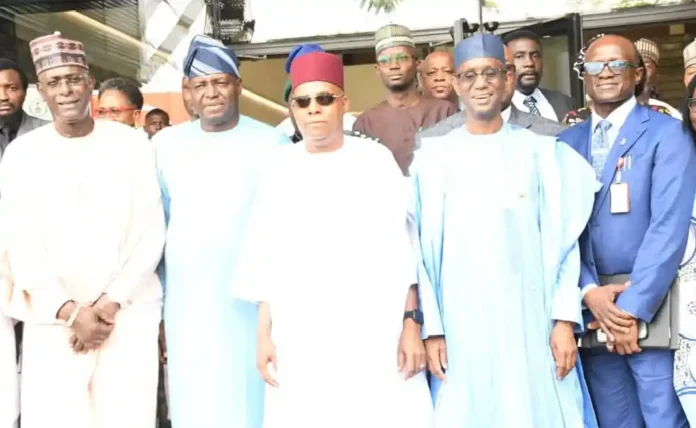Vice President Kashim Shettima has launched Nigeria’s Anticipatory Action Framework, a major step toward tackling climate-related disasters before they happen. The unveiling took place at a validation workshop in Abuja, where the Vice President made it clear that the country can no longer afford to wait for disasters to strike before responding. He emphasized that the growing frequency of floods and climate impacts have become an immediate concern, not a distant threat. In 2024 alone, over five million Nigerians were affected by severe climate-induced events.
This new approach shifts Nigeria’s focus from reacting after disasters to acting in advance. The framework introduces a strategy built around three powerful tools—timely early warning systems, financial resources set aside before crises hit, and stronger preparedness at the local level. These tools are designed to help communities stay ahead of floods and reduce the damage they cause.
At the heart of the plan is a dedicated trigger group that includes agencies such as NiMet, NiHSA, NEMA, NASRDA, and NOA, along with international partners like the UN Office for the Coordination of Humanitarian Affairs (UNOCHA) and the Food and Agriculture Organization (FAO). Their role is to monitor early warning signs and deliver flood forecasts up to two weeks in advance, giving people and emergency services time to respond.
Vice President Shettima pointed to research showing that taking early action can reduce disaster-related losses by as much as 60 percent. He highlighted a real-life example from Benue State, where 80,000 residents were successfully evacuated within 72 hours thanks to proactive planning. He also noted that Nigeria loses up to five percent of its GDP each year due to disasters that could be prevented with timely action.
Minister of Humanitarian Affairs and Poverty Alleviation, Nentawe Yilwatda, recommended the use of the National Social Register to identify and support vulnerable communities. He also called for stronger laws on disaster risk management and the use of real-time technology to monitor emerging threats.
The initiative received praise from the United Nations, with Mohamed Malick Fall commending Nigeria for leading the region in disaster preparedness. National Security Adviser Nuhu Ribadu also tied disaster readiness to national security, underscoring the wider implications of being unprepared.
Inna Audu, Special Assistant to the President on Humanitarian Affairs, added that the framework aligns with President Bola Tinubu’s goal of building a disaster-resilient Nigeria. She stressed the importance of creating a unified early warning system that works across different levels of government and reaches those most at risk.
With this new framework, Nigeria is setting a precedent in how to manage climate risks—not by reacting to tragedy, but by staying a step ahead.

